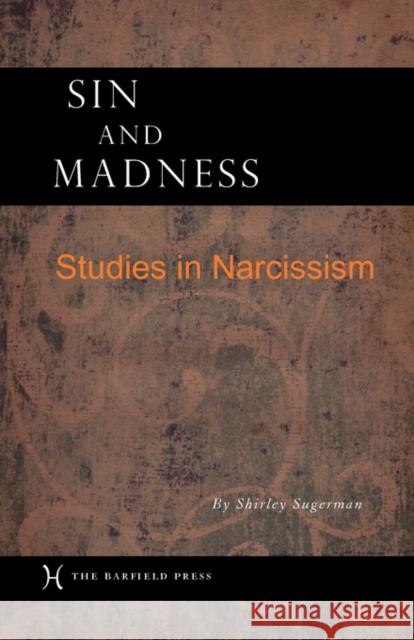Sin and Madness: Studies in Narcissism » książka
Sin and Madness: Studies in Narcissism
ISBN-13: 9781597311182 / Angielski / Miękka / 2008 / 184 str.
Dr. Sugerman looks deeply into our current human condition and sees divided selves in a divided world on a course toward both ecocide and suicide. She asks, "What has prevented us from reversing our course?" Her answers are found in related interpretations of what theologians have called "sin" and others have called "madness" -- illustrated best, she feels, by the image of Narcissus. The myth of Narcissus proves useful as a lens through which a pattern of behavior and an underlying core of human reality is seen. Indeed, Narcissism proves to be a spiritual aberration manifest throughout human history, East and West. An inquiry is made into man's tendency to "pride" and its self-destructiveness, long known but little understood by the major religious traditions. We are then presented a post-Freudian model for our self-understanding as well as a metaphor for the human condition. Modern psychoanalysis, we are shown, provides a contemporary idiom that seems to reanimate our traditional views of man. And the author's cross-cultural, interdisciplinary approach leads to a way of understanding human beings that is both consistent with the traditional wisdom of the East and the West and congenial to modern consciousness. Her interpretation of the human predicament is not only revealing but full of hope.
Dr. Sugerman looks deeply into our current human condition and sees divided selves in a divided world on a course toward both ecocide and suicide. She asks, “What has prevented us from reversing our course?” Her answers are found in related interpretations of what theologians have called “sin” and others have called “madness” — illustrated best, she feels, by the image of Narcissus.The myth of Narcissus proves useful as a lens through which a pattern of behavior and an underlying core of human reality is seen. Indeed, Narcissism proves to be a spiritual aberration manifest throughout human history, East and West. An inquiry is made into man’s tendency to “pride” and its self-destructiveness, long known but little understood by the major religious traditions. We are then presented a post-Freudian model for our self-understanding as well as a metaphor for the human condition.Modern psychoanalysis, we are shown, provides a contemporary idiom that seems to reanimate our traditional views of man. And the author’s cross-cultural, interdisciplinary approach leads to a way of understanding human beings that is both consistent with the traditional wisdom of the East and the West and congenial to modern consciousness. Her interpretation of the human predicament is not only revealing but full of hope.











